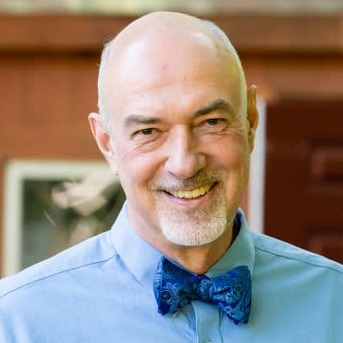Commentary on Matthew 21:23-32
Matthew highlights Jesus’ authority as a central, albeit contested issue throughout the Gospel (for example, Matthew 7:28-29, 9:32-34, 12:24, 28:18).1
Matthew is not content, however, with the simple claim that Jesus possesses divine power, nor even that his power surpasses that of worldly leaders. Matthew focuses instead on the nature, source, and consequences of Jesus’ power. He aims to demonstrate not only that Jesus is more powerful than the world’s powers, but that his power is of a different kind, a power that produces healing and reconciliation rather than alienation and violence. From the moment of Jesus’ entry into Jerusalem, Matthew focuses ever more insistently on the assertion, demonstration, defense, and finally the affirmation, via the cross and resurrection, of Jesus’ authority.
The story of Jesus’ initial encounter with the most powerful leaders in Jerusalem follows soon after Jesus’ triumphal entry and his cleansing and occupation of the temple. As the second day of Jesus’ occupation begins, the various groups that oppose Jesus inaugurate a series of five challenges (Matthew 21:23-32, 22:15-22, 22:23-33, 22:34-40, and 22:41-46), all of which aim at undermining his authority, in order to dislodge him from the temple. Although we customarily break the story that begins in Matthew 21:23 into discrete units, this first challenge does not formally end until 22:14, making this by far the longest single controversy/challenge story in the Gospel. These stories are all “zero-sum” contests in which the winner gains honor—and power—at the loser’s expense. If Jesus were to lose any of these challenges, his occupation of the temple would cease, his challenge to the authorities in Jerusalem would end, and the leaders would regain control of the temple. If they win any of these challenges, there is no need to crucify him.
In this first, long challenge, Jesus’ adversaries are chief priests and elders of the people. The political legitimacy and authority of the priestly leaders in Jerusalem, who ruled at Rome’s pleasure, was itself widely questioned. Both the elders, who were wealthy elites, and the chief priests controlled large parcels of land in Judea and beyond, making them virtually identical with the rich, powerful landowners who are the frequent targets of Jesus’ parables, as in Matthew 21:33-46. “Elders of the people” is an ironic ascription; it soon becomes clear that the chief priests and elders do not represent the people; instead they both fear and seek to manipulate the crowds to carry out their will (21:26, 46; 26:3-5; 27:20).
The challenge posed by the chief priests and elders focuses on two closely related, yet distinct questions: “By what authority (or what kind of authority) are you doing these things (i.e., cleansing and occupying the temple)?” and “Who gave you this authority?” The first question is about the nature of Jesus’ authority, the second about its source (see also Matthew 9:34, 12:24). Because Jesus currently occupies the temple, he has the upper hand, and can set the conditions for his reply. Before he will answer them, they must tell him about John’s baptism: was it from heaven or merely human? This question puts them in a bind. They know that a denial of the legitimacy of John’s baptism will not play well with the crowds, whose support they need. On the other hand, if they affirm that John’s baptism came from heaven, he will ask them why they did not submit themselves to it. Their answer—“we don’t know”—is only two words long in the Greek; we should imagine these words being delivered under their breath. They have lost.
With this exchange, the challenge itself is formally ended, but Jesus will continue to occupy the temple and to defend his authority to be there until he is ready to leave of his own accord (Matthew 24:1-2). Jesus, however, is not yet done with the chief priests and elders of the people. He extends his challenge to their authority by speaking in parables (21:28-22:14). The first of these is a version of the “two sons” tradition (similar to Luke’s parable of the prodigal and his older brother). The two sons tradition itself begins with Cain and Abel and includes Jacob and Esau, Joseph and his brothers, Aaron and Moses, and David and his brothers—a tradition laden with motifs of envy and betrayal, struggles for power, and sometimes reconciliation. Because this parable is relatively short, we may miss the multiple points of resonance with Israel’s foundational stories. Jesus calls the sons in this parable “children,” just as Israel was often identified as God’s (sometimes rebellious) children. The vineyard is a stock symbol in Jewish tradition for Israel. Jesus is, therefore, not asking his adversaries to comment on random, fictitious brothers, but to locate themselves within Israel’s foundational and continuing stories.
The distinction between the two brothers turns on action versus word. Jesus and his adversaries agree that only one son does the will of the father, the son who says “no,” but goes nonetheless into the vineyard to work. Actions speak louder than words. Jesus uses this exchange to expose what the leaders really thought about John. The chief priests’ and elders’ failure to believe and respond to John reveals the truth about where they stood, and thus which brother they actually represent. Jesus’ authority, in contrast, is affirmed by the integrity of his words and actions, as well as by its outcomes: gathering and restoration, healing and cleansing, release from demonic powers, restored sight, table fellowship with sinners, and preservation of the least ones—all examples of the “fruit” of repentance.
Apparently, “believing” entails making a decision about what kind of power is legitimate, Jesus’ power or that of the Judean leaders. Only Jesus manifests a form of power that requires us to change our minds about the source, nature, and fruit of true power. Can we discern the nature and source of the powers that hold us in thrall? Can we distinguish the fruit of divine power in the midst of all that the powers of this world promise us?
Notes
- Commentary first published on this site on Oct. 1, 2017.


September 27, 2020